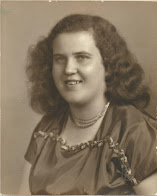In the
greater scope of things, is your clan weird?
Mine won’t
win any prizes, they’ve proven their true worth.
My dad was a
“dirty old man”.
My mom a “gold
digging hussy”.
Or so the
respective “Families” said.
I have
always felt disowned by my blood,
We were
rarely included, given a thought
In
celebrations and fun.
They all
could not see the love, they had for each other,
Our
“Family”.
Mother’s
menfolk had to ‘work’ and so missed the wedding.
Dad’s family
said they could still see his dead wife beside him.
Twenty-six
years was too great a divide,
Their love
didn’t meet the proper definition,
Of “Family”.
At Christmas
Grandmother bought me pj’s while my cousins got trucks.
One exceptional
year nothing under the tree for me,
“Oh, I left
it upstairs, I’ll get it in a moment”, she muttered.
I could hear
her wrapping something and I was presented with mis-fitting pj’s.
Some
“Family”
The Uncles
took the boys fishing and hunting,
To learn
life skills that would make them men.
I wasn’t
included, wonder what they were thinking?
But I
learned a life skill,
How to hate
“Family”.
Older
cousins left me on the bench at little league.
Psst, dad
forced them to put me on the team,
Then they
lied why I didn’t play
I learned
isolation at an early age,
From
“Family”.
Funny, they
could ask my parents for loans.
Risking
handouts wasn’t forbidden.
Deals on
cars, loans for houses, a little pocket money,
Dad never
complained, just did what was right,
For “Family”
Only mother
could care for grandmother when she took ill,
After all she
had the ‘room’ and the ‘time’.
Never complaining
after working forty hours and then cleaning up shit.
Sitting near
the hospital bed, knitting mittens and waiting.
For
“Family”.
Their marriage
was not perfect,
Yes they quarreled
and fought,
No more than
others I’m sure.
But the love
they shared inspired,
Our little
“Family”
I’ve now
built my own little brood,
Successful
and strong,
Based on the
example of their love.
I’m sure mom
and dad would be proud.
If they
could see, my “Family”
Roy Richard
(Coot)
July 2022
Copyright
Roy Richard








